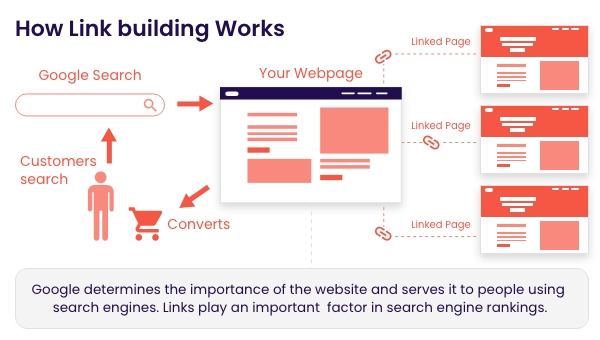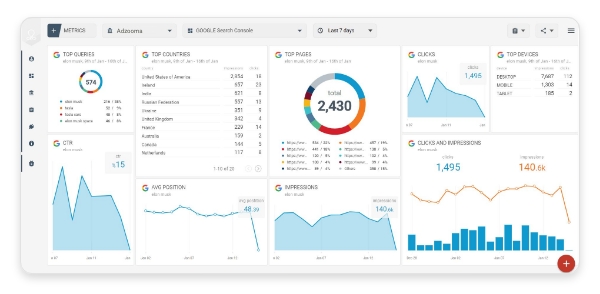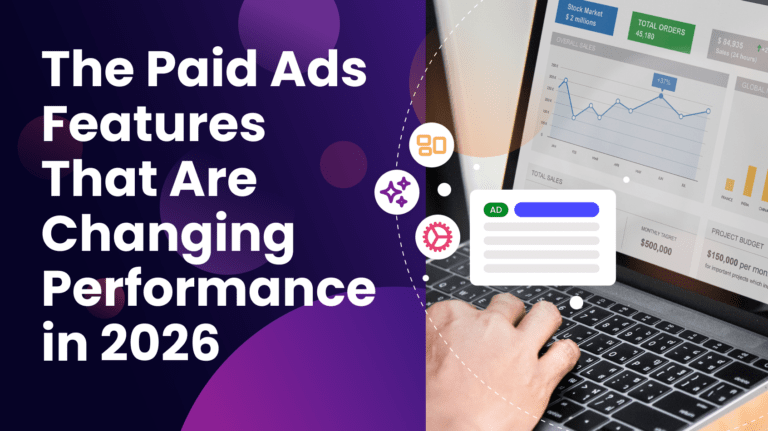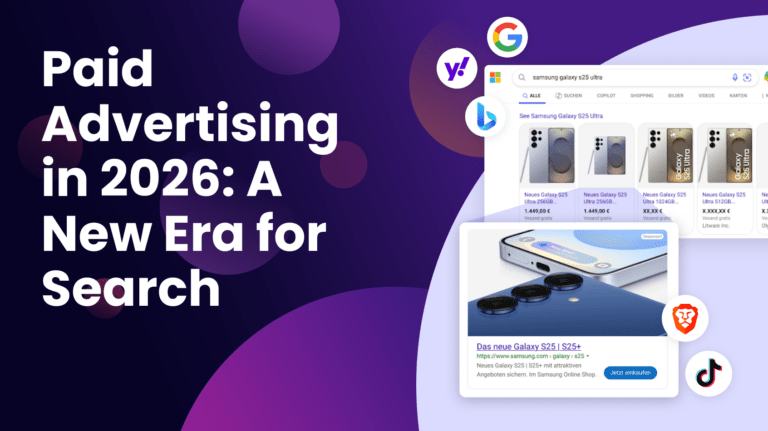SEO is critical for businesses in today’s competitive market, especially small to medium ones. This does not lessen the challenge of executing it well, considering the many ranking factors necessary to generate high organic search results. Link building is one factor that is quite important yet easy to overlook. Read on to understand the importance of link building for SEO.
What is link building?
Link building is the steps taken to acquire hyperlinks from other websites to yours. Hyperlinks are ways that users navigate between web pages. Search engines utilise those links as well to crawl through web pages. Those links enable more movement through your web pages and entire websites.
As an SEO Strategy, link building increases traffic to your website when search engines crawl through hyperlinks on your web pages. Of course, your website needs to have content worthy of such interest. Therefore, part of link building is publishing great content that gets you links you hadn’t planned for, which is like a gold mine for anyone doing search engine optimisation.
How does link building work?
Link building has two major sides to it: internal linking and external linking. Internal linking is easier to achieve because those links are to your web pages. It only needs time and planning to ensure the internal links boost your SEO efforts. The idea is to ensure each internal page is reachable through one text link. Therefore, planning will involve deciding on your website design theme and consistency to make such links work. A good trick is to link to relevant blog posts, social media channels, and product pages, not just direct traffic to your homepage.
External linking takes more effort. You’ll need to earn backlinks from credible, high-quality websites through excellent content. In that spirit, avoid resorting to black hat tricks such as paying for links. Such links are usually from spammy and irrelevant sites that’ll only dilute your site’s value. Here are some of the best strategies to get worthy backlinks:

Referral sources
Check out which sites are linking to your content, and see how you can increase that interaction. Referral sources are those sites linking to your content and giving you backlinks. By analysing that relationship, you’ll understand which content gets you such recognition and work towards adding and refining such content.
Form partnerships
You could also analyse your website and find out which authoritative websites are linked to it, and approach those for partnerships. Since your site generates lots of traffic for them, it shouldn’t be too hard to establish a partnership.
Check out the competition
You can also find out how your main competitors are getting backlinks. Since you operate in the same market, it’s worth considering reaping the benefits of similar resources. You only need to spy on them ethically and observe integrity with the information you gather.
Google Search Console
You can use this tool to get data that’ll point out opportunities for generating backlinks. The tool is also helpful for revealing the type of content other sites targeted when linking to yours.

Broken links
While spying on the competition and other sites, take note of all broken links. These are backlinks that used to be active but are no longer so. Reasons include the content being unavailable, moved, or such changes. You can then approach the primary sites and pitch your site and content as viable replacements.
High-quality content
This should be at the top of your to-do list. Quality content gets other relevant and authoritative websites interested in providing backlinks. In addition, it generates sustainable interest in your site and sets up future content for similar attention. Lastly, it helps cement your position in the market as a voice of authority in that niche.
Guest blogging
You’ll generate strong backlinks by guest blogging on high-quality and authoritative websites. Being a voice of authority in your niche, the partner websites will be motivated to publish your guest posts to their advantage. A Google search should reveal relevant websites that accept guest blog posts.
What makes a link valuable?
As you search for backlinks, ensure they’ll only contribute positively to your website. Here are the characteristics of quality links:
Relevance
A backlink should be relevant to the content on both websites. Placing as many backlinks as possible will generate traffic only for a short while. Google and other search engines won’t rank your pages highly when they see no correlation between your pages and those links. Remember, search is meant to provide solutions, not merely direct traffic.
Link to authoritative websites
This may seem too obvious to mention, but remember that there are billions of websites. Aim to link to websites that are well established in their field, considered trustworthy, and enjoy an excellent reputation in the market. Such instantly recognisable websites take time to develop, therefore, their content is valuable. While it won’t be easy getting a backlink from such sites, that link is worth investing in pursuing.

Unique
A good backlink is directly from that authoritative website. You’d rather have a few unique backlinks than many duplicated and spammy links. Having several links from the same website does nothing to increase interest in your site. If anything, it decreases interest from search engines, which hurts your SEO efforts.
Increase traffic
High-quality backlinks will get more people to visit your website. Remember, the idea here is to generate as much traffic to your site as possible. Therefore, a backlink that’s no longer directing a lot of traffic consistently should be removed in favour of new ones that do.
Non-reciprocal
The common practice of websites to exchange backlinks is no longer viable and can be viewed by search engines as shady. Exchanging links used to work well until unscrupulous individuals abused that feature. In addition, black hat SEO practices made things worse when they adopted the practice, making search engines sensitive to it. Therefore, reciprocate backlinks with trusted websites, but do so occasionally. Stick primarily to non-reciprocal backlinks from sites you’ve never used before.
Social media
Backlinks from social media pages are precious since most people spend so much time there. The high traffic and increased browser presence naturally make social media backlinks favourable. In addition, social media engagement has become a critical factor in search engine page ranking.
What are the benefits of link building?
You can pick several benefits of link building throughout this article. Let us summarise the top ten benefits:
1. Links make your site credible.
2. Link building gives your site higher metrics and SEO scores.
3. Backlinks lead to increased website traffic.
4. Links are a significant portion of what Google uses to rank your site.
5. Partnering with authoritative websites in your niche helps improve your standing in the market.
6. Linking to top websites provides a constant traffic stream, compared to other marketing efforts’ seasonal nature.
7. Link building opens up more opportunities for revenue generation.
8. Link building makes your brand the leader in your niche and your website an authoritative one.
9. You’ll experience lower bounce rates through internal linking.
10. Link building leads to increased visibility and exposure even in new markets.
Conclusion: Is link building still important for SEO?
Link building has proven to be a significant part of SEO, especially considering its relevance in today’s market and its impact on SEO efforts. Therefore, its importance is without question. You can improve your website’s SEO impact by partnering with us. Our experience and expertise will help you navigate the complex world of link building. Get in touch today, and let us discuss your SEO needs.




